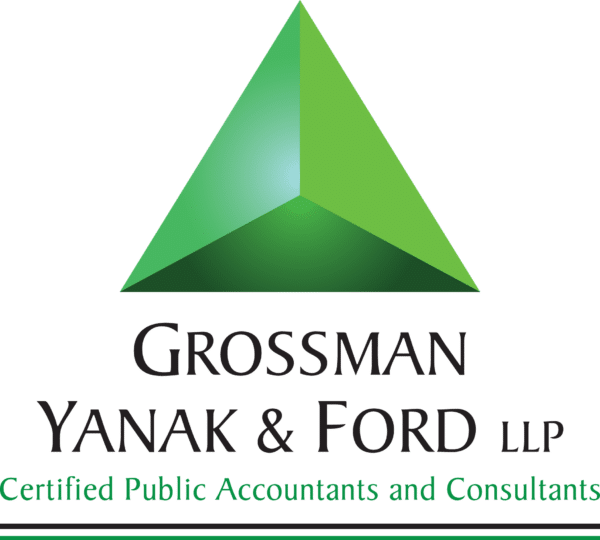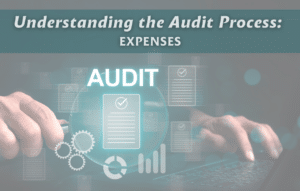Coming up with a plan for the future is not an easy thing to do. Choosing what you want to study in college is one of the toughest, and most important, decisions you will make in your life. For many students, once this decision is made, their college career takes a fairly straight-forward path. However, unlike other majors, accounting involves some other decisions that need to be made along the way. This article is designed to help guide you on this challenging journey, outlining some of the steps toward obtaining your first full time job offer.
Freshman Year
Preparation and organization are the main things you need to keep in mind as an incoming freshman accounting major. There are many different routes you can take in accounting, but the sooner you have an idea of what you want to do the better. As a freshman in your entry level accounting classes, you have an important decision to make – whether want to become a Certified Public Accountant (CPA).
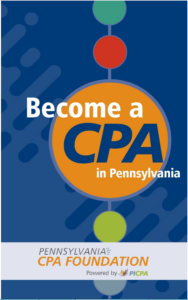 If you want to work for a public accounting firm, becoming a CPA is recommended and, sometimes, even required. The CPA credential is desirable for most other accounting jobs as well. Getting your CPA license will open up many doors for employment as well as advancement opportunities, but it is not for everyone. If you decide not to take the CPA route, you can generally earn a typical four-year degree in accounting. Those aspiring to become CPAs will need to earn extra credits (150 total) to meet the licensing requirements.
If you want to work for a public accounting firm, becoming a CPA is recommended and, sometimes, even required. The CPA credential is desirable for most other accounting jobs as well. Getting your CPA license will open up many doors for employment as well as advancement opportunities, but it is not for everyone. If you decide not to take the CPA route, you can generally earn a typical four-year degree in accounting. Those aspiring to become CPAs will need to earn extra credits (150 total) to meet the licensing requirements.
Fortunately, these credits can be completed after your undergraduate degree and can be taken virtually anywhere as long as it is an accredited school. There are many options for obtaining these credits. Some people decide to complete all of the credit hours as an undergrad before seeking employment, while others opt to go into a master’s program to get the extra credits along with an advanced degree. Yet another option is to graduate with a typical four-year degree, start studying for the CPA exam right after graduation, and complete parts of the exam while taking classes online or at a community college – often while also getting experience hours in an accounting position.
It does not matter how you earn the credits as long as you get to 150. You can sit for the exam with a four year accounting degree. However, even if you pass all the parts of your exam, you will need to complete your 150 credits before you can become officially licensed.
Sophomore Year
It is never too early to start networking, but sophomore year is when you really need to get your name out there, especially to your professors who have connections in the field. This is the time of your college career where you want to sign up for leadership conferences, career fairs and other job-related events. Many firms, including Grossman Yanak & Ford LLP, hold an annual leadership conference for accounting students who have just completed their sophomore years. These conferences are great opportunities for you to learn more about accounting, expand your network, and to be noticed by potential future employers for possible internship offers.
At GYF’s conference, the students interact with other students, interns, staff, seniors, management, and even the partners. Additionally, these future accountants have an opportunity to participate in multiple simulations involving both tax and audit as well as professional development and community service activities. Leadership conferences are a good way for the students to get a foot in the door with an accounting firm, and can also help students develop a more professional mindset as they learn how to act in the workplace and understand the daily routines of an accountant.
Junior Year
If you have not already done so, you need to start looking into internships ASAP! Some internship offers may be a result of the leadership conferences noted above, or referrals from your professors. But, if you do not have something lined up, you need to attend career fairs and participate in events like the accounting consortium to line up interviews and possible internship offers – your college’s career development office should be able to point you in the right direction, if you need some help finding opportunities and preparing for interviews.
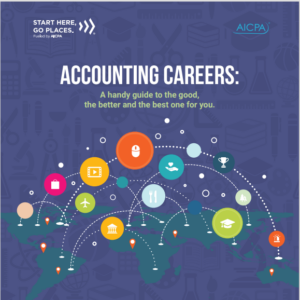 An internship is a great experience that will allow you to become familiar with the type of work you will be doing after graduation. There are many different areas in accounting (i.e., tax, audit, valuation, etc.), and getting a taste of each through an internship can help you further shape your career plans. Internship experience also looks extremely good on resumés when applying for jobs post-graduation. Many schools require and/or offer credits for internships, and some may allow you to work as an intern for a semester instead of taking classes. Your career development center can help you to understand your school’s requirements or other special arrangements. In any case, it is beneficial to complete at least one, if not several, internships before you graduate.
An internship is a great experience that will allow you to become familiar with the type of work you will be doing after graduation. There are many different areas in accounting (i.e., tax, audit, valuation, etc.), and getting a taste of each through an internship can help you further shape your career plans. Internship experience also looks extremely good on resumés when applying for jobs post-graduation. Many schools require and/or offer credits for internships, and some may allow you to work as an intern for a semester instead of taking classes. Your career development center can help you to understand your school’s requirements or other special arrangements. In any case, it is beneficial to complete at least one, if not several, internships before you graduate.
Senior Year and Beyond
As a senior, this is your last chance to network with and submit your resumé to potential employers before you graduate. Ideally, you want to know where you will be working before you leave colllege. If you stay on top of things and are proactive with the steps noted above, this is a very achievable goal.
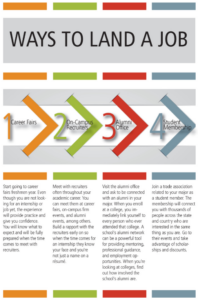 Often, a successful internship experience in the summer after your junior year can lead to a job offer from an accounting firm at the start of your senior year. If you do not have a job lined up, be sure to attend as many career fairs and other events as possible to meet potential employers. The interviews you receive at this point are the most important you have had, as they determine where you will be working after graduation. There is a lot of competition, and now is the time to show employers what you are worth.
Often, a successful internship experience in the summer after your junior year can lead to a job offer from an accounting firm at the start of your senior year. If you do not have a job lined up, be sure to attend as many career fairs and other events as possible to meet potential employers. The interviews you receive at this point are the most important you have had, as they determine where you will be working after graduation. There is a lot of competition, and now is the time to show employers what you are worth.
Senior year is also when you need to create a plan for earning your CPA, if you chose to take that path. In the spring you will develop a study plan, and near the end of the semester it is recommended that you sign up to take the first part of the test. Again, like the job search process, the sooner you get started the better. Many employers will give you a later start date (several months after graduation) to give you time to complete a few, if not all, of the parts of the exam before you start working full time.
Obviously, employers want you to get it done as fast as possible, but it is important to go at your own pace so you can complete the exam to the best of your ability. If you think that you may struggle with a study plan, or need help staying motivated, companies (like Becker) offer classes and study programs to keep you on track. Numerous other resources can be used to assist you with this process, including those offered by your college, the PICPA or your employer – you just need to find the one that works the best for you.
Again, the key to being successful during this whole process is preparation and organization. It is best to decide what you want to do as early as possible, because then you can begin organizing your plan for your future to get a jump on your peers who will be competing with you for jobs. Showing initiative early and getting ahead of the game will make your life easier, and it will look very good in the eyes of potential employers.
Click on the images above or visit the PICPA website for additional resources for future CPAs


